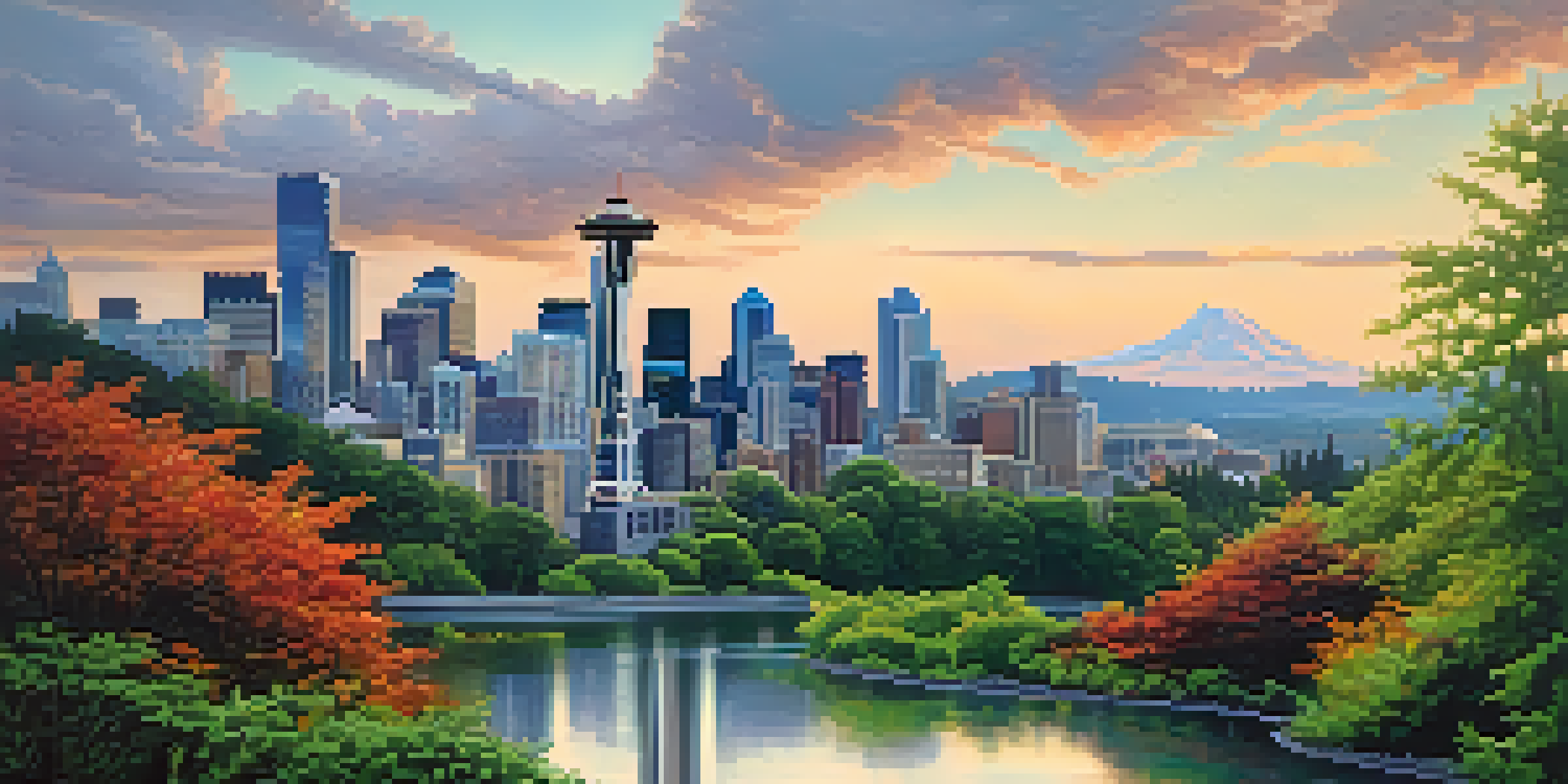The Impact of Seattle's Climate on Its Unique Ecosystems

Seattle's Unique Climate: An Overview
Seattle is often characterized by its cool, wet climate, receiving an average of 37 inches of rain each year. This temperate maritime climate is influenced by the nearby Pacific Ocean, which helps to moderate temperatures throughout the seasons. The city's climate plays a crucial role in shaping its ecosystems, making it a hotspot for biodiversity. Understanding this climate is essential for appreciating the delicate balance of life that thrives in the region.
The Role of Rainfall in Ecosystem Diversity
Rainfall in Seattle is not just a weather pattern; it's a lifeblood for local ecosystems. The consistent precipitation supports lush greenery and diverse plant life, creating habitats for various animal species. For instance, the temperate rainforests found in the surrounding areas, like the Olympic Peninsula, are a direct result of this abundant rainfall. This rich biodiversity is a testament to the intricate relationship between climate and the environment.
Rainfall Fuels Seattle's Ecosystems
The consistent rainfall in Seattle supports lush greenery and diverse wildlife, making it essential for local biodiversity.
Impact of Temperature Fluctuations on Wildlife
While Seattle is known for its mild temperatures, fluctuations can significantly impact local wildlife. During the summer months, temperatures can rise, prompting animals to adapt their behaviors, such as seeking shade or water. Conversely, cooler winters can challenge species that are not equipped to handle frost. These temperature shifts demonstrate how resilient ecosystems must be to thrive amid changing conditions.
Influence of Urbanization on Natural Habitats
Urbanization in Seattle has led to significant changes in natural habitats, impacting local ecosystems. As the city expands, green spaces are often altered or diminished, affecting wildlife that relies on these areas. However, Seattle has made strides in promoting urban greening initiatives, such as creating parks and green roofs, which help mitigate some of these impacts. Balancing development with ecological preservation is crucial for sustaining the city's unique biodiversity.
Urbanization Threatens Natural Habitats
As Seattle expands, urbanization alters green spaces, impacting the ecosystems that rely on these habitats.
The Importance of Wetlands in Seattle's Ecosystem
Wetlands are vital to Seattle's ecosystem, acting as natural water filters and habitats for countless species. They support biodiversity by providing breeding grounds for fish and birds, while also helping to manage floodwaters. Unfortunately, many wetlands have been lost due to urban development, highlighting the need for conservation efforts. Protecting and restoring these areas is essential for maintaining the health of Seattle's ecosystems.
Climate Change: A Growing Concern for Local Ecosystems
Climate change poses significant risks to Seattle's unique ecosystems, with rising temperatures and altered precipitation patterns. For instance, salmon populations, which are vital to both the environment and local culture, are increasingly threatened by warmer waters and habitat loss. Adapting to these changes requires collaborative efforts among scientists, policymakers, and the community. Awareness and action are crucial to protect these ecosystems for future generations.
Climate Change Challenges Biodiversity
Rising temperatures and changing precipitation patterns due to climate change pose significant risks to Seattle's unique ecosystems.
Community Engagement in Environmental Conservation
Seattle's residents play an essential role in environmental conservation efforts, with many local organizations dedicated to preserving ecosystems. Community initiatives, such as tree planting and beach cleanups, foster a sense of stewardship among citizens. These collective actions not only enhance local biodiversity but also strengthen community ties. Engaging the public in conservation efforts is key to ensuring the long-term health of Seattle's unique ecosystems.
Future Prospects: Sustainability in Seattle's Ecosystems
Looking ahead, sustainability will be paramount in preserving Seattle's ecosystems amidst ongoing climate challenges. Efforts to promote sustainable practices, such as reducing carbon footprints and enhancing green infrastructure, are already underway. Educating the community about the importance of ecosystems will also foster a culture of respect for nature. By prioritizing sustainability, Seattle can safeguard its diverse ecosystems for generations to come.